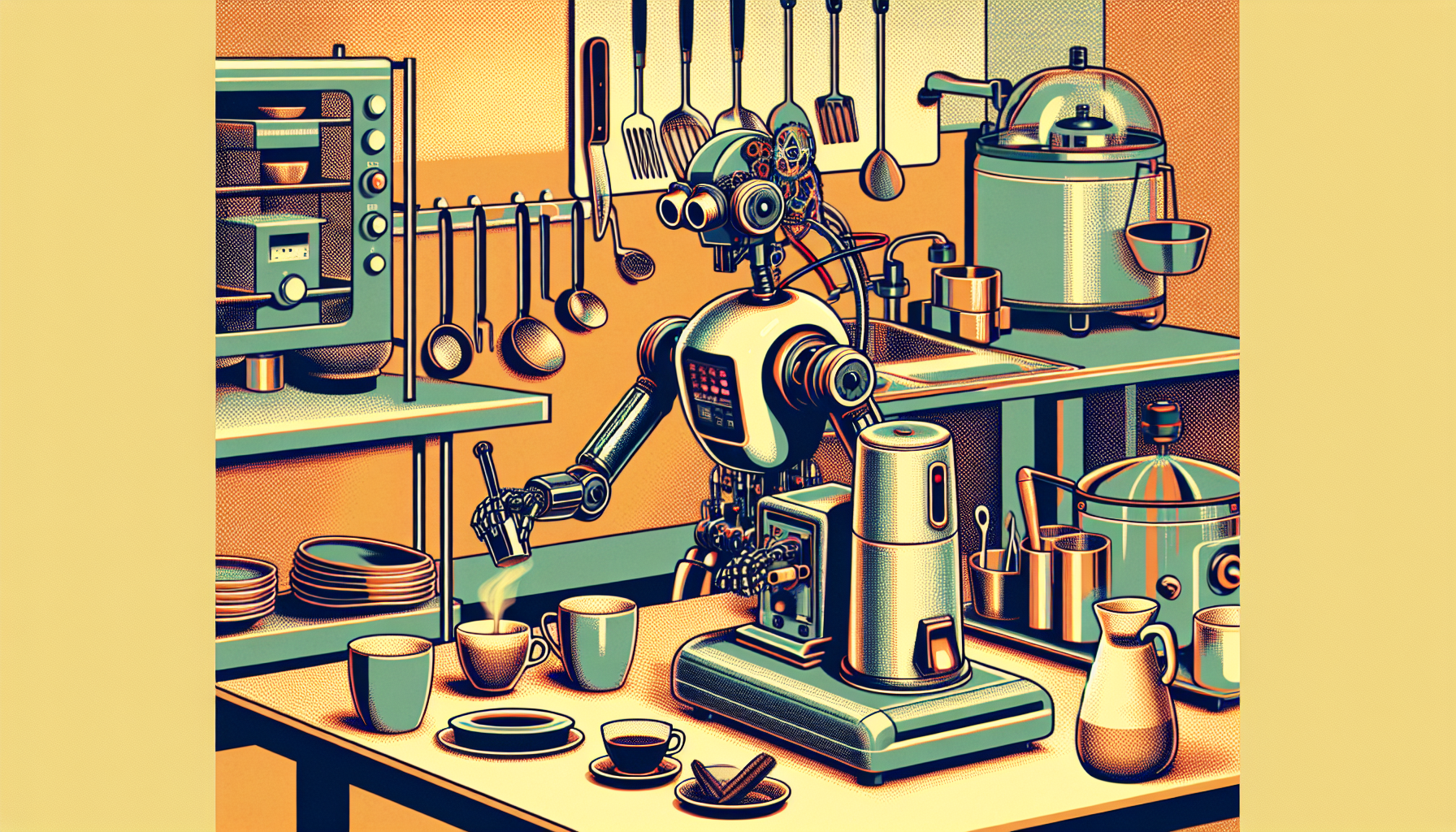In a groundbreaking leap for artificial intelligence (AI), researchers from the University of Edinburgh have introduced a robot capable of making coffee in the hustle and bustle of a busy kitchen. This technological marvel not only showcases the robot’s dexterity in handling complex tasks amid unpredictable circumstances but also ushers in an era where intelligent machines are woven into the fabric of our daily routines.
### Exploring the Robot’s Capabilities
– **Blending AI with Sensory Precision**: At the core of this innovative robot lies a sophistication of AI, paired with sensitive sensors and expertly calibrated motor abilities. This combination allows the robot to engage with its environment in ways that are strikingly human-like.
– **Dynamic Arm Movement**: Outfitted with a robotic arm boasting seven movable joints, the machine deftly handles meticulous tasks. It can precisely measure coffee grounds, mix them with water, and perform other intricate kitchen activities.
– **Adapting to Chaos**: One of its most impressive features is its adaptability. When faced with unexpected disruptions, like being jostled while performing tasks, the robot seamlessly continues its work without faltering.
– **Understanding Human Speech**: Equipped with natural language processing capabilities, the robot can accurately comprehend spoken instructions. It can also analyze its surroundings to locate specific items, such as a coffee mug, enabling it to function efficiently in the kitchen.
### Broadening the Horizons in AI and Robotics
This remarkable development marks a pivotal moment for AI and robotics, particularly in how these machines can acclimate to fluctuating environments. Historically, robots excelled in well-ordered places like factories, yet faltered in variable settings such as kitchens. The Edinburgh team’s achievement in blending AI with stellar motor skills bridges this gap, empowering robots to interact adeptly with objects and individuals in demanding landscapes.
### Impact on Society
The implications of this advancement for society are profound. As robots grow more intelligent and autonomous, they are poised to become essential components of everyday life. Their presence could reshape industries relying on efficiency and interactive experiences. Ruaridh Mon-Williams, who leads the research project, underscores the importance of discussing these societal impacts as AI and robotics evolve.
### Unlocking Future Possibilities
This innovation holds immense potential for service-based industries, where robots could lend a hand in tasks traditionally reserved for humans. The capability of these machines to operate in dynamic environments like kitchens paves the way for meaningful human-robot collaboration. This could revolutionize both domestic settings and commercial services alike.
As AI technology continues to advance, we can anticipate the rise of ever more advanced robots that blend seamlessly into our lives. This fusion will transform how we interact with technology, challenging and redefining the barriers between automation and human connection.

Leave a Reply